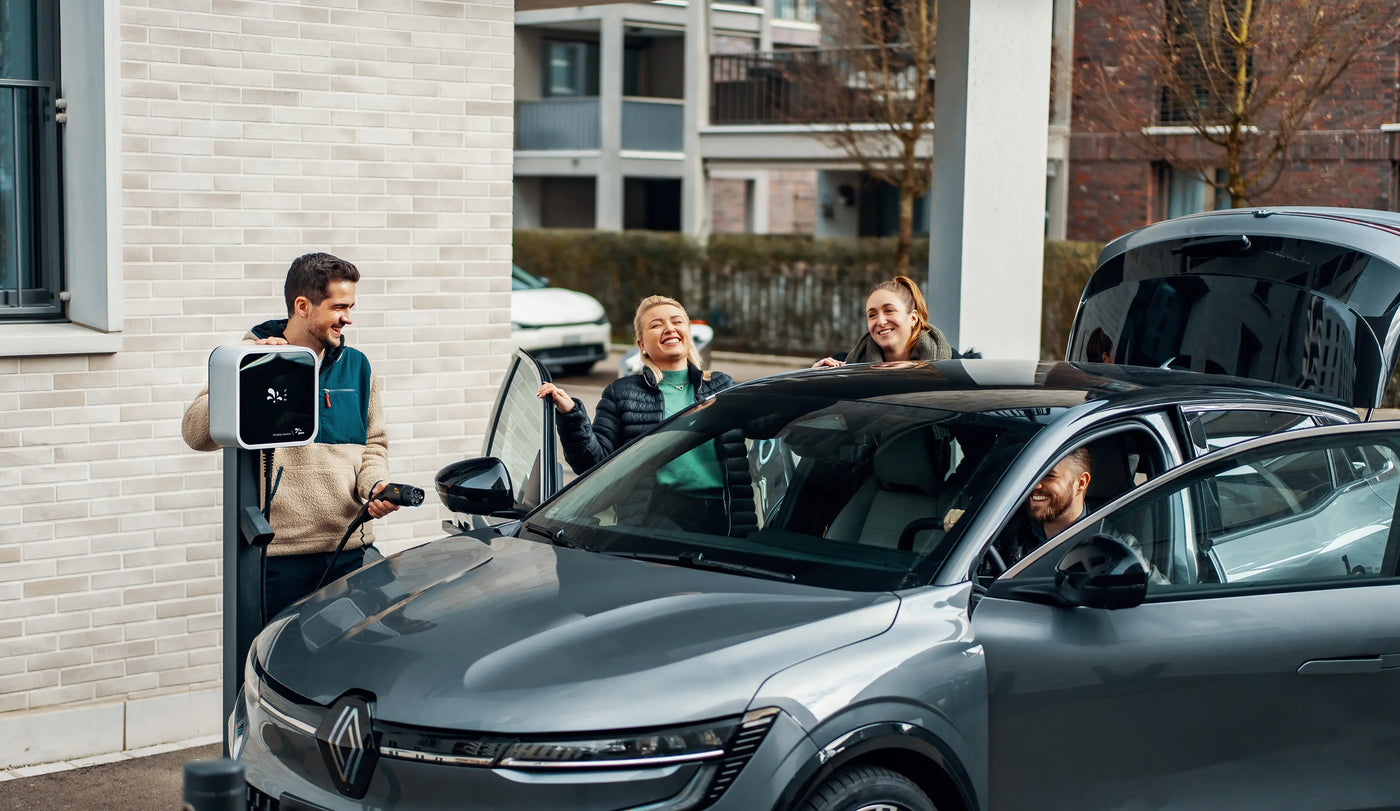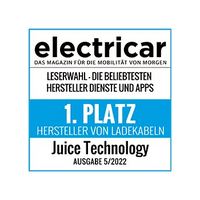Favorable starting position with room for improvement
Switzerland has a solid foundation in electromobility. The half-year figures for 2025 show encouraging growth in new registrations of electric cars. The number is rising in both passenger cars and commercial vehicles. In particular, Switzerland's leading position in Europe for electric trucks demonstrates that alternative drive systems are increasingly being adopted in transport and logistics. The well-developed public charging network provides the necessary foundation. The direction is right – now it's time to further improve the framework conditions to realize the full potential.
Charging at home: The key to breakthrough
Despite much progress, one thing remains crucial: anyone who owns an electric car also wants to be able to charge it conveniently. And this mostly happens where they live. This is precisely where the problem lies for many. Around three-quarters of the Swiss population live in multi-family houses, the majority of whom rent. Only a fraction have access to a private charging station. Yet it is precisely this access that is often the deciding factor for switching to an electric car. According to a survey by the Sotomo Institute, 29 percent of households with their own charging option own an electric car, while without one the number is just one percent. This shows that those who cannot charge at home generally decide against an electric car. The lack of charging infrastructure is a key obstacle, especially for tenants. This hurdle is now also being recognized by politicians.
Green light for home charging for everyone
In Germany, there has been a legal right to suitable charging infrastructure at one's place of residence since 2020. In Switzerland, however, such a "right to charge" has been lacking until now. A corresponding motion, submitted by Green Liberal National Councilor Jürg Grossen in 2021, expired after two years due to parliamentary overload. Only with his new proposal in 2023 ("Charging of electric cars in rental agreements and condominiums") did the matter gain momentum. After the National Council had already approved it, the Council of States followed suit in June 2025 – despite rejection by the Energy Committee and concerns from the Federal Council, which was skeptical of such a legal right. This paves the way for legal regulation: years of standstill could end and the urgently needed expansion of charging infrastructure in rental properties could receive a new boost.
Operating costs: E-cars have a clear advantage
Access to charging infrastructure in the residential area is not only a question of convenience, but also of cost: Those who can charge at home drive significantly more economically. According to the industry association Swiss eMobility, the annual operating costs of a gasoline car are around 1,292 francs – based on a consumption of 7 liters per 100 kilometers, a gasoline price of 1.80 francs, and 10,000 kilometers driven. With an electric car, on the other hand, it is up to 1,000 francs cheaper per year – depending on where you live and your power source. However, the full savings potential is only realized if you can charge at home – ideally with electricity from your own solar system. Those who rely on public charging, on the other hand, sometimes pay up to 0.80 cents per kilowatt hour – and thus lose a large part of the financial advantage. This shows how crucial access to charging infrastructure is in everyday life. In addition to the environmental aspect, cost-effectiveness is a strong argument for electromobility.
Funding policy: Federal diversity instead of national uniformity
In contrast to Germany, which has long massively promoted the sale of electric cars with multi-billion-euro purchase incentives such as the "environmental bonus," Switzerland has traditionally been cautious when it comes to government subsidies. There have been hardly any nationwide incentives – except for the temporary exemption from car import tax, which was also lifted at the beginning of 2024.
Instead, cantons and municipalities are engaging with targeted incentives – for example, in the form of tax breaks, local funding programs, or direct subsidies. This results in a federally-oriented, highly inconsistent picture – ranging from generous aid to no support at all.
While this fragmentation reflects the country's liberal identity and decentralized structure, it complicates planning and unsettles potential buyers. Clear, consistent, and predictable framework conditions are crucial to creating an investment-friendly environment. Ultimately, those who don't want to actively promote the transition to environmentally friendly technologies should at least not unnecessarily complicate it through fragmented regulations or tax disadvantages.
Conclusion: The conditions are good – now it’s time to use them
Switzerland is on the right track when it comes to the acceptance and spread of electric cars. Demand is growing, the public charging network is well developed, and the technology is convincing in everyday use. However, this should not obscure the fact that in a country with a high proportion of renters, charging infrastructure in private residential areas is the key lever for increasing electromobility.
A "right to charge" can significantly accelerate the expansion of private charging infrastructure – and thus make the switch to electric mobility not only more practical for many people, but also more economically attractive. It is therefore an important step forward that a legal framework is finally being created to facilitate home charging. Now it's all about concrete implementation.
Read more here
- The BEV market in the DACH region gains momentum in the first half of 2025:
Elektromobilität im DACH-Raum: Der Markt kommt in Schwung | Juice Technology AG
- Review and outlook: How the DACH market for e-mobility is developing structurally: Electromobility 2025 – Part 1: Review, perspectives and future strategies in the DACH region | Juice Technology AG
- Global trends and regional characteristics in electromobility: Electromobility 2025 – Part 2: International Perspectives and Regional Challenges | Juice Technology AG
- Focus on funding policy, charging infrastructure, and market dynamics in Germany: Electromobility 2025 – Part 3: Future strategies for Germany | Juice Technology AG













